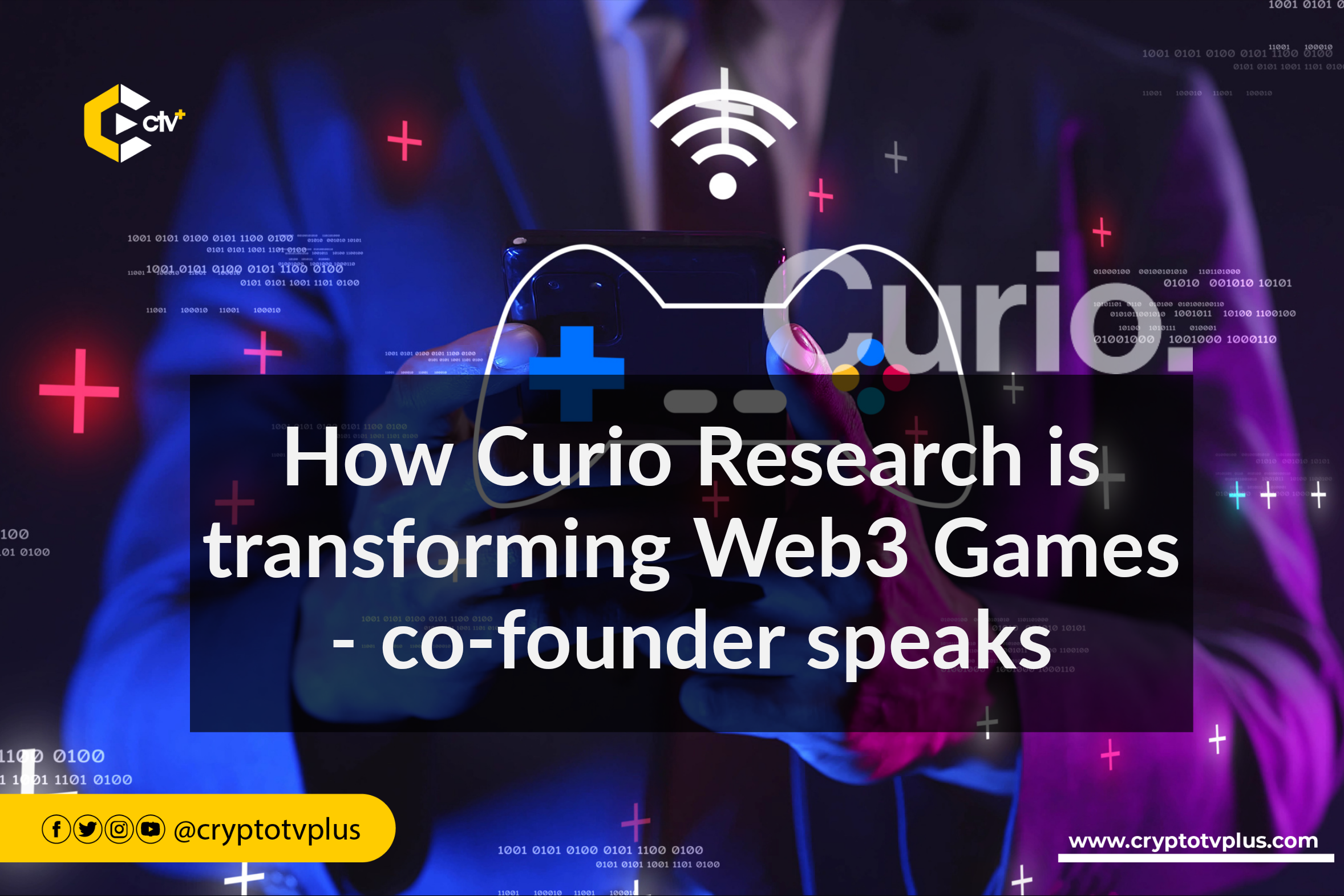FEATURED
How Curio Research is transforming Web3 Games – co-founder speaks

Blockchain games, also known as Web3 games, have revolutionized the gaming industry by harnessing the power of blockchain technology.
While Web3 games offer unique advantages like granting players true control and ownership of in-game assets, they are still in the early stages of development compared to their Web2 counterparts, particularly in terms of user experience.
Yijia Chen, co-founder of Curio Research, a pioneering company in the field of crypto-native games and infrastructure, shed light on their approach during his talk at EthCC Paris.
He emphasized that Curio Research focuses on launching blockchain games that prioritize the overall player experience. Chen also introduced an intriguing concept called “treaties,” which are smart contracts designed to enhance social interactions within the gaming environment.
The speaker argued that real-world social interactions are complex and driven by valuable assets and effective law enforcement mechanisms. In contrast, current multiplayer games often lack the depth and complexity of real-life social interactions.
However, blockchain games, with their decentralized and secure digital assets, address the valuable asset aspect. To enhance the social layer further, Curio Research introduced the concept of “treaties,”. Treaties allow players to create and execute agreements, such as non-aggression packs, trade deals, defense packs, and more. These smart contracts enable players to interact in more meaningful and complex ways, enhancing the overall gaming experience.
Chen stressed that treaties are uniquely suited for blockchain games because of the on-chain logic and verifiability they provide. He revealed that the company has launched a game that uses the treaties model.
Keystone game engine
The speaker further said that the company has been working on a revolutionary roll-up based on-chain game engine framework called Keystone. The context is that they are trying to create an efficient and fast blockchain-based gaming experience.
Due to the complex architecture of the game being built on a smart contract-based logic, the time from intent to execution takes around 15 seconds, which is not ideal for a real-time strategy game.
The co-founder explained that many current blockchain-based games avoid this problem by limiting the design space to actions that take a long time (such as actions in Dark Forest, a well-known blockchain-based game). To address these issues and achieve high performance for on-chain games, the speaker introduced Keystone, an on-chain game engine framework.
Keystone utilizes an Entity-Component-System (ECS) architecture, enabling high throughput and fast game ticks, making it perfect for classic real-time strategy (RTS)-style games. The game logic and smart contracts are written in Go, running on an EVM (Ethereum Virtual Machine) optimized for gaming.
Keystone brings a multitude of advantages. It empowers historical state querying for treaties, making it convenient. Moreover, smart contracts can be easily integrated to facilitate social interactions. Additionally, Keystone offers full EVM compatibility.
Moreover, the speaker made it clear that they actively support developers who aspire to build upon Keystone. They provide assistance and abundant resources to explore diverse game design possibilities.
Read also; CCTP: A Game-Changing Liquidity Layer for USDC on Multiple Chain

























1 Comment